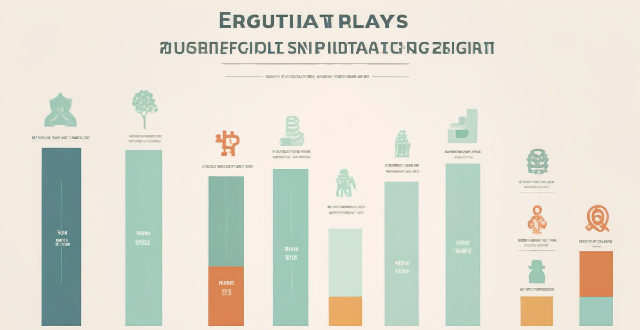Defi Regulation

How does DeFi differ from traditional finance ?
DeFi is a financial system based on blockchain technology and smart contracts, while traditional finance relies on intermediaries like banks. Key differences include centralization vs decentralization, accessibility, transparency, security, cost efficiency, and regulation. DeFi offers advantages such as wider accessibility, higher transparency, and lower fees, but also comes with risks. It's important to research and consult professionals before making financial decisions.

Is decentralized finance regulated by governments or financial institutions ?
The regulation of decentralized finance (DeFi) is a complex issue that involves both government and financial institutions. Governments can regulate DeFi indirectly through tax laws and anti-money laundering/know your customer (AML/KYC) laws, while also taking enforcement actions such as investigations, sanctions, and fines. Financial institutions may engage in self-regulation by establishing industry standards and best practices, building bridges with traditional finance, and offering insurance products tailored for DeFi risks. As the DeFi ecosystem continues to grow, it is likely that both government and financial institution regulation will continue to evolve.

Are there any risks associated with investing in DeFi ?
Investing in DeFi comes with risks such as smart contract vulnerabilities, impermanent loss, regulatory uncertainty, and lack of transparency. It is important for investors to carefully evaluate these risks before investing in any DeFi project.

How do DeFi tokens work ?
Decentralized Finance (DeFi) tokens are digital assets operating on blockchain technology, designed to facilitate financial transactions without intermediaries. These tokens can represent various assets like currencies, commodities, and cryptocurrencies. Key features of DeFi tokens include decentralization, smart contracts, and interoperability. They work through token issuance, utility within their respective projects or platforms, and governance mechanisms allowing holders to vote on important decisions related to the project's development. Benefits of DeFi tokens include accessibility, transparency, and innovation in financial products and services.

What is decentralized finance (DeFi) and how does it work ?
Decentralized finance (DeFi) is a financial system based on blockchain technology that operates without intermediaries like banks. It is transparent, borderless, permissionless, and interoperable. The core components of DeFi are smart contracts, cryptocurrencies, decentralized applications, and blockchain infrastructure. Users can access DeFi platforms through wallets, provide collateral for loans, earn interest by depositing their cryptocurrencies into lending platforms, trade assets peer-to-peer, get insurance against risks associated with smart contracts and cryptocurrency holdings, and have voting rights within the ecosystem. However, DeFi faces challenges such as scalability issues, regulatory uncertainty, security risks, and user experience complexity. Despite these challenges, DeFi has immense potential to democratize finance and provide inclusive solutions.

How can I get started with decentralized finance ?
Topic Summary: The text provides an overview of Decentralized Finance (DeFi) and its benefits, such as transparency, accessibility, efficiency, and innovation. It outlines steps for getting started with DeFi, including self-education on cryptocurrencies and blockchain, setting up a crypto wallet, acquiring cryptocurrency, connecting to a DeFi platform, exploring DeFi services like lending, borrowing, liquidity providing, yield farming, and tokenization, and practicing safe DeFi habits. The text emphasizes the importance of risk management, security, and continuous learning in navigating the evolving world of DeFi.

What is financial regulation ?
The text discusses the concept of financial regulation, which is a set of rules and guidelines that govern the operations of financial institutions. The primary objectives are to ensure stability and integrity of the financial system, promote fair dealing, protect consumers, and prevent financial crises. Key components include prudential regulation, market conduct regulation, consumer protection, systemic risk oversight, structural regulation, regulation of market infrastructure, and international coordination. Purposes of financial regulation are to ensure stability, promote transparency, protect consumers, facilitate efficiency, and prevent criminal activity. Methods of financial regulation include rulemaking, supervision, inspection, capital requirements, and liquidity requirements. Challenges in financial regulation include balancing oversight with innovation, keeping pace with technology, and international coordination.

What are the benefits of using decentralized finance ?
Decentralized finance (DeFi) is a sector within the cryptocurrency space that aims to create an open-source, permission-less, and transparent financial service ecosystem using blockchain technology. It offers several benefits over traditional financial systems, including increased accessibility, lower costs, greater transparency, enhanced security, programmable money, improved efficiency, and financial inclusion. By eliminating intermediaries and reducing overhead costs, DeFi makes financial services more affordable and accessible to a wider audience. Its transparent ledger system reduces fraud and increases trust among participants, while its secure blockchain networks protect user funds. DeFi also enables programmable money, allowing for customized financial products and services, and improves efficiency by streamlining transaction processing. Ultimately, DeFi has the potential to revolutionize finance by democratizing access to essential financial services for underbanked populations and bridging the gap between developed and developing countries in terms of financial access.

How secure is decentralized finance compared to traditional finance ?
The text provides a comparative analysis of the security aspects of decentralized finance (DeFi) and traditional finance (TradFi). DeFi relies on blockchain technology for peer-to-peer transactions, while TradFi operates through centralized institutions. Both systems have unique security features and risks, with DeFi offering transparency and automated contract execution but facing smart contract vulnerabilities and lack of regulatory clarity. TradFi benefits from regulatory oversight and physical security measures but is susceptible to systemic risks and cybersecurity threats. The choice between DeFi and TradFi depends on individual preferences and risk tolerance, and it's crucial to stay informed about new developments in the evolving financial landscape.

Why is financial regulation important ?
Financial regulation plays a crucial role in maintaining the stability and integrity of the financial system. It protects investors by ensuring transparency and preventing fraudulent activities, maintains stability by preventing excessive risk-taking, encourages economic growth through competition and innovation, and prevents financial crime such as money laundering. Without adequate regulation, the risks associated with financial activities could lead to significant economic disruptions and harm to individuals and businesses alike.

How has financial regulation evolved over time ?
The evolution of financial regulation has been marked by significant changes in response to economic crises, technological advancements, and shifts in political ideologies. From the laissez-faire approach of early days to the rise of regulatory frameworks during the Great Depression, through the deregulation era of the late 20th century, and the renewed emphasis on regulation following the Global Financial Crisis, financial regulation has adapted to maintain stability and promote growth within the financial sector. The digital age presents new challenges, requiring regulators to adapt existing frameworks to accommodate technological innovations while ensuring consumer protection and systemic stability.

What are some popular DeFi platforms ?
Summary: The text provides an overview of popular DeFi (decentralized finance) platforms, including Uniswap, Compound, MakerDAO, Aave, and Curve Finance. Each platform has unique features that enable users to trade, lend, borrow, or earn interest on their crypto assets without intermediaries. These platforms utilize various models such as automated market makers, over-collateralization, flash loans, and innovative algorithms to facilitate transactions and maintain stability in a decentralized environment.

How does financial regulation differ across countries ?
Financial regulation is the process by which governments and other regulatory bodies oversee and control the financial sector. The objective of financial regulation is to ensure the stability of the financial system, protect consumers, promote fair competition, and prevent financial crimes. However, the way financial regulation is implemented varies significantly across countries due to differences in economic structures, legal systems, political ideologies, and cultural values. The legal and institutional framework for financial regulation differs widely among countries. Some countries have a centralized regulatory body that oversees all aspects of the financial sector, while others have multiple regulators responsible for different segments of the market. Capital requirements and risk management practices also vary across countries. In general, developed countries tend to have stricter capital requirements and more sophisticated risk management practices than emerging markets. Consumer protection and disclosure requirements are another area where financial regulation differs across countries. In some countries, such as the United States, there is a strong emphasis on protecting investors from fraudulent activities and ensuring transparency in financial transactions. Taxation policies and anti-money laundering (AML) regulations also play a role in shaping financial regulation across countries. Tax havens, for example, attract foreign investment by offering low tax rates and minimal regulatory oversight, which can lead to concerns about money laundering and tax evasion. Cultural and societal factors can influence financial regulation in various ways. For instance, trust in government institutions and the rule of law tends to be higher in countries with stronger democratic traditions, which may lead to greater acceptance of regulatory interventions. Conversely, countries with weaker institutions or a history of corruption may face challenges in implementing effective financial regulation. Additionally, social preferences regarding income inequality, environmental sustainability, and other issues can shape the priorities of financial regulators in different countries.

How does financial regulation affect the economy ?
Financial regulation plays a crucial role in the economy by ensuring stability, promoting fairness, and protecting consumers. It helps maintain stability by reducing systemic risks, promotes fairness by enforcing laws against fraudulent activities and protecting consumer interests, and supports economic growth by supporting infrastructure development, promoting access to finance, and encouraging foreign investment. Striking a balance between regulation and market freedom is essential for long-term prosperity.

Can yoga or meditation combined with exercise enhance emotion regulation ?
Emotion regulation is a crucial aspect of mental health, and it refers to the ability to manage and control one's emotional responses. There are various ways to enhance emotion regulation, and one of them is through physical activities such as yoga, meditation, and exercise. In this article, we will discuss how these practices can help improve emotion regulation. Yoga is a mind-body practice that combines physical postures, breathing techniques, and meditation. It has been shown to have numerous benefits for mental health, including enhancing emotion regulation. Yoga helps to reduce stress and anxiety, increases self-awareness, and promotes mindfulness. Meditation is another practice that involves focusing the mind on a particular object, thought, or activity to achieve a mentally clear and emotionally calm state. Like yoga, meditation has been shown to have numerous benefits for mental health, including enhancing emotion regulation. Meditation improves attention and focus, reduces emotional reactivity, and increases self-awareness. Exercise is another effective way to enhance emotion regulation. It reduces stress and anxiety, improves mood, and increases resilience. Combining yoga, meditation, and exercise can provide even greater benefits for emotion regulation by providing a comprehensive approach to well-being that addresses both the physical and mental aspects of emotion regulation.

What is the impact of financial regulation on innovation in the financial sector ?
Financial regulation plays a critical role in the innovation landscape of the financial sector, with both positive and negative impacts. Positively, it promotes transparency and trust, encourages responsible innovation, and facilitates access to capital. However, it can also slow down the pace of innovation, restrict experimentation, and stifle international competitiveness. To mitigate these negative effects, adaptive regulation, collaborative approaches, and education and training are recommended. Striking a balance between fostering innovation and ensuring safety is crucial.

What is the relationship between financial regulation and financial stability ?
The relationship between financial regulation and financial stability is crucial for the proper functioning of the economy. Financial regulation, consisting of laws and guidelines, aims to ensure the safety and soundness of the financial system and protect consumers. Financial stability, on the other hand, refers to a condition where the financial system can withstand shocks without significant disruptions. Financial regulation affects financial stability in several ways: 1. It prevents financial fraud and misconduct by enforcing strict rules and penalties, maintaining public trust in the financial sector. 2. It promotes transparency and disclosure, allowing stakeholders to make informed decisions and enabling regulators to monitor the financial system effectively. 3. Regulators encourage sound risk management practices, such as capital requirements and stress testing, contributing to overall financial stability. 4. They maintain market integrity by promoting fair competition and preventing monopolistic behavior, ensuring confidence in the financial system. 5. Regulators address systemic risks through macroprudential policies, safeguarding against widespread financial instability. In conclusion, financial regulation plays a vital role in maintaining financial stability by preventing fraud, promoting transparency, encouraging sound risk management, maintaining market integrity, and addressing systemic risks. However, finding the right balance between regulation and innovation is crucial for achieving both regulatory effectiveness and financial stability.

What role does government regulation play in improving air quality ?
Government regulation plays a crucial role in improving air quality by implementing policies and standards that reduce emissions from various sources. These regulations are designed to protect public health, preserve the environment, and promote sustainable development. The different ways government regulation contributes to improving air quality include setting emission standards, enforcing compliance with regulations, promoting clean energy sources, supporting research and development, and educating the public. By engaging with citizens and fostering a culture of environmental responsibility, governments can encourage behavior change that leads to improved air quality.

In what ways do sports help with emotional regulation in children ?
Engaging in sports can significantly aid children in developing emotional regulation skills by promoting stress reduction, enhancing self-esteem, developing resilience, encouraging teamwork and social interaction, teaching discipline and self-control, providing an outlet for energy, and promoting mindfulness.

Does exercise influence emotional regulation and mental well-being, which in turn affects cognitive processes ?
The article explores the relationship between exercise, emotional regulation, mental well-being, and cognitive processes. It suggests that regular physical activity can positively impact emotional regulation by reducing stress levels, improving self-esteem, and providing a healthy outlet for negative emotions. Exercise also contributes to improved mental well-being by alleviating symptoms of depression and anxiety, promoting relaxation, and providing opportunities for social interaction. These factors, in turn, influence cognitive processes such as attention, memory, problem solving, and decision making. Overall, the article concludes that incorporating exercise into daily routines can have numerous benefits for overall health and well-being.

What is the future of cryptocurrency ?
The future of cryptocurrency is uncertain but will be shaped by trends like decentralization, adoption and integration, regulation and legal clarity, and innovation.

What are the main objectives of financial regulation ?
The main objectives of financial regulation are to promote stability, efficiency, and protect consumer interests in the financial sector. This involves preventing systemic risks, protecting depositors and investors, ensuring market integrity, encouraging competition, improving access to finance, facilitating innovation, ensuring fair treatment, providing education, and handling complaints. By achieving these goals, financial regulators help maintain a healthy and vibrant economy while safeguarding the interests of all stakeholders involved.

What is the General Data Protection Regulation (GDPR) ?
The General Data Protection Regulation (GDPR) is a comprehensive data privacy law that governs how personal information is collected, processed, and stored by organizations within the European Union (EU). It was designed to protect the rights of individuals and ensure their personal data is handled securely and transparently. Key features of GDPR include data minimization, consent, transparency, data portability, right to erasure, data protection officers (DPOs), and penalties for non-compliance. Benefits of GDPR compliance include enhanced trust between organizations and customers, risk mitigation through strong data protection measures, competitive advantage in the EU market, and increasing global relevance as other countries adopt similar laws. Challenges of GDPR compliance include complexity, cost, cultural differences leading to confusion and potential non-compliance, and technological limitations. In conclusion, the General Data Protection Regulation (GDPR) is a crucial piece of legislation that aims to protect the privacy rights of individuals within the European Union. While it presents both benefits and challenges for organizations, compliance with GDPR has become an essential aspect of modern business operations in today's digital age.

How does exercise influence hormone regulation in the body ?
Exercise affects hormone regulation in the body, impactingExercise affects hormone regulation in the body, impacting the intensity, duration, and impacting various hormones depending on the intensity, duration, and type of exercise. Regular exercise can increase testosterone levels in men and estrogen levels in women, reduce cortisol levels, and increase growth hormone levels. It can also improve insulin sensitivity and reduce insulin resistance, as well as maintain a healthy body fat distribution. However, excessive exercise or prolonged periods of intense training can have negative effects on hormone production and lead to low testosterone levels in men, low estrogen levels in women, high cortisol levels, low growth hormone levels, worsened insulin resistance, and decreased body fat distribution. Therefore, it is important to choose an appropriate type of exercise and maintain a balanced lifestyle for optimal hormone regulation and overall health.

How do sports psychology techniques help with emotion regulation ?
This article explores the importance of emotion regulation in sports performance and how sports psychology techniques can help athletes regulate their emotions. The techniques discussed include self-talk, visualization, goal setting, breathing techniques, and mindfulness meditation. These techniques enable athletes to stay focused, confident, and motivated during competitions, leading to better performances. By incorporating these techniques into their training routines, athletes can learn to manage their emotions effectively and maintain optimal mental states for peak performance.

What is the role of international organizations in financial regulation ?
International organizations are crucial in financial regulation, promoting stability, cooperation, and coordination among countries. They set global standards, enhance coordination, provide policy advice, facilitate information exchange, and monitor market developments. The Basel Committee on Banking Supervision, International Organization of Securities Commissions, and International Association of Insurance Supervisors develop regulatory standards for banks, securities regulators, and insurance, respectively. The Financial Stability Board coordinates international financial regulation, while the Bank for International Settlements facilitates cooperation among central banks. The World Bank and IMF offer technical assistance and support for financial sector development and reform. The Committee on Payment and Settlement Systems promotes payment system stability, and the Joint Forum of Tax Administrations addresses tax evasion. The Global Financial Stability Report and Early Warning Exercises monitor market developments and emerging risks. Overall, these organizations help ensure financial stability, reduce systemic risks, and foster a more transparent and resilient global financial system.

What is the impact of financial regulation on global financial markets ?
Financial regulation is vital for maintaining stability and efficiency in global financial markets. It influences market stability by reducing volatility and preventing crises, improves risk management through enhanced transparency and control over high-risk practices, protects investors from fraud and unfair trading practices, and fosters innovation while ensuring safety and compliance. This balance is crucial for the health and growth of the global economy.

How do sports help in the emotional regulation of teenagers ?
Adolescence is a period of significant emotional, physical, and psychological changes. Sports can play a crucial role in helping teenagers regulate their emotions effectively by promoting physical health, developing social skills, building self-esteem and confidence, providing an outlet for emotions, and teaching discipline and responsibility. Encouraging teenagers to participate in sports is an investment in their overall wellbeing and future success.

How many minutes are there in a regulation football match ?
The duration of a regulation football match is 90 minutes, split into two 45-minute halves with a 15-minute halftime break. However, additional time may be added at the end of each half to compensate for stoppages during the game, known as "stoppage time" or "injury time." When including pre-match warm-ups and halftime, the total time for the event can range from approximately 115 to 125 minutes. In some competitions, matches may extend even further due to extra time or penalty shootouts.

What is the future of blockchain beyond cryptocurrency ?
This article explores the potential applications of blockchain technology beyond cryptocurrency, highlighting key areas such as decentralized finance (DeFi), supply chain management, healthcare, government services, and intellectual property rights management. It emphasizes how blockchain can improve transparency, security, efficiency, and accessibility in these sectors through features like peer-to-peer transactions, smart contracts, tokenization, traceability, interoperability, data privacy, identity management, public records storage, voting systems, proof of ownership, streamlined licensing, and fraud prevention. The article concludes by stating that the future prospects of blockchain technology are vast and promising, offering numerous opportunities for innovation and transformation across various industries.